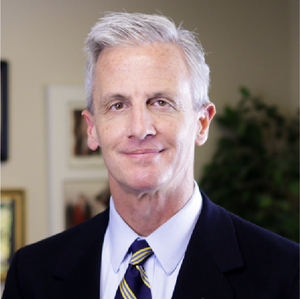
Culture & the Family
Brandon Dutcher | September 30, 2022
What is ‘pro-family’ public policy? Here are some principles
Brandon Dutcher
Last week the Ethics and Public Policy Center (EPPC) released a statement of principles for “a pro-family approach to public policy.” The legal scholars and policy experts who signed the document made some recommendations that are worth considering. They said that policymakers should:
Seek to strengthen the bond of marriage and the enduring relationship between mothers, fathers, and their children that forms the core of family life.
Ensure that unborn children are protected in law, and that mothers and their infants receive the care and social support they deserve to ensure a healthy start to life.
Acknowledge the out-of-pocket and opportunity costs associated with becoming a parent, and advance policies that would make having children more affordable and achievable.
Pursue approaches to paid leave that provide a baseline of protection for new parents from the demands of the workplace.
Create an approach to early childhood that embraces parents’ different values and needs, eschewing credentialization and over-regulation for authentic pluralism, while ensuring that families with a parent working part-time or at home are treated equitably.
Develop labor policies that create flexibility for parents without jeopardizing their financial security, allowing more families to find the work-life balance that is right for them.
Reinforce the dignity of work by expecting and empowering at least one parent to participate in the labor force, both to contribute to society and to model the virtues of consistency, conscientiousness, and self-sufficiency.
Appreciate how increases in the cost of living burden parents, particularly those living on a single income, and seek to lower costs in sectors like housing, health care, and higher education by removing artificial barriers to entry and encouraging innovation.
Remediate imbalances in tax and safety net policies, recognizing the family as an economic institution and ensuring married families are, at the very least, not at a disadvantage compared to single or cohabiting parents.
Recognize the unique challenges facing men and boys, and pursue workforce and education policies that better empower them to achieve their full potential as committed husbands, fathers, and role models.
Respect parental authority and the fundamental right of families to raise their children according to their faith, values, and beliefs, and give parents more tools and opportunities to find environments that buttress, not undermine, that authority from classrooms to the digital sphere.
Though not everyone on the right will agree with each of those specific points, most would agree that the statement is an important contribution to our public discourse. And EPPC is not alone in this policy space. A few months ago, the Edmund Burke Foundation’s national-conservatism project published its own statement of principles. The statement’s “family and children” section says:
We believe the traditional family is the source of society’s virtues and deserves greater support from public policy. The traditional family, built around a lifelong bond between a man and a woman, and on a lifelong bond between parents and children, is the foundation of all other achievements of our civilization. The disintegration of the family, including a marked decline in marriage and childbirth, gravely threatens the wellbeing and sustainability of democratic nations. Among the causes are an unconstrained individualism that regards children as a burden, while encouraging ever more radical forms of sexual license and experimentation as an alternative to the responsibilities of family and congregational life. Economic and cultural conditions that foster stable family and congregational life and child-raising are priorities of the highest order.
The EPPC and Edmund Burke Foundation statements are new—and indeed, even today Heritage Foundation president Kevin Roberts also praised a family-policy agenda—but more than 15 years ago scholars Allan C. Carlson (president of The Howard Center for Family, Religion and Society) and Paul T. Mero (president of the Sutherland Institute) published their own statement of principles. They wrote:
We affirm that the natural family, not the individual, is the fundamental unit of society.
We affirm the natural family to be the union of a man and a woman through marriage for the purposes of sharing love and joy, propagating children, providing their moral education, building a vital home economy, offering security in times of trouble, and binding the generations.
We affirm that the natural family is a fixed aspect of the created order, one ingrained in human nature. Distinct family systems may grow weaker or stronger. However, the natural family cannot change into some new shape; nor can it be redefined by eager social engineers.
We affirm that the natural family is the ideal, optimal, true family system. While we acknowledge varied living situations caused by circumstance or dysfunction, all other “family forms” are incomplete or are fabrications of the state.
We affirm the marital union to be the authentic sexual bond, the only one open to the natural and responsible creation of new life.
We affirm the sanctity of human life from conception to natural death; each newly conceived person holds rights to live, to grow, to be born, and to share a home with its natural parents bound by marriage.
We affirm that the natural family is prior to the state and that legitimate governments exist to shelter and encourage the natural family.
We affirm that the world is abundant in resources. The breakdown of the natural family and moral and political failure, not human “overpopulation,” account for poverty, starvation, and environmental decay.
We affirm that human depopulation is the true demographic danger facing the earth in this new century. Our societies need more people, not fewer.
We affirm that women and men are equal in dignity and innate human rights, but different in function. Even if sometimes thwarted by events beyond the individual’s control (or sometimes given up for a religious vocation), the calling of each boy is to become husband and father; the calling of each girl is to become wife and mother. Everything that a man does is mediated by his aptness for fatherhood. Everything that a woman does is mediated by her aptness for motherhood. Culture, law, and policy should take these differences into account.
We affirm that the complementarity of the sexes is a source of strength. Men and women exhibit profound biological and psychological differences. When united in marriage, though, the whole becomes greater than the sum of the parts.
We affirm that economic determinism is false. Ideas and religious faith can prevail over material forces. Even one as powerful as industrialization can be tamed by the exercise of human will.
We affirm the “family wage” ideal of “equal pay for equal family responsibility.” Compensation for work and taxation should reinforce natural family bonds.
We affirm the necessary role of private property in land, dwelling, and productive capital as the foundation of familial independence and the guarantor of democracy. In a just and good society, all families will hold real property.
And we affirm that lasting solutions to human problems rise out of families and small communities. They cannot be imposed by bureaucratic and judicial fiat. Nor can they be coerced by outside force.

Brandon Dutcher
Senior Vice President
Brandon Dutcher is OCPA’s senior vice president. Originally an OCPA board member, he joined the staff in 1995. Dutcher received his bachelor’s degree in political science from the University of Oklahoma. He received a master’s degree in journalism and a master’s degree in public policy from Regent University. Dutcher is listed in the Heritage Foundation Guide to Public Policy Experts, and is editor of the book Oklahoma Policy Blueprint, which was praised by Nobel Prize-winning economist Milton Friedman as “thorough, well-informed, and highly sophisticated.” His award-winning articles have appeared in Investor’s Business Daily, WORLD magazine, Forbes.com, Mises.org, The Oklahoman, the Tulsa World, and 200 newspapers throughout Oklahoma and the U.S. He and his wife, Susie, have six children and live in Edmond.